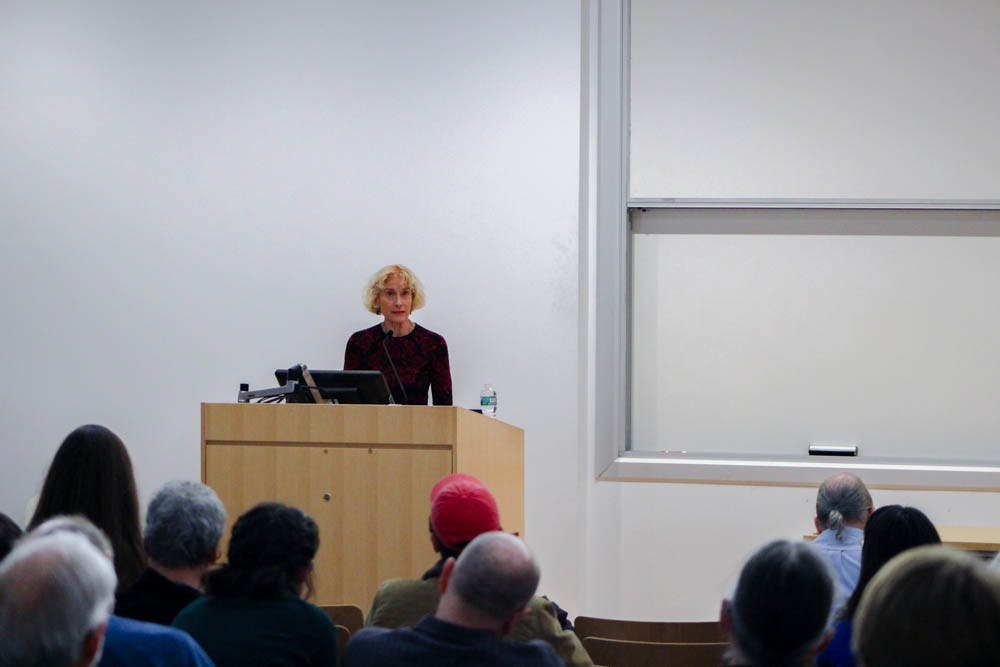Can academic philosophers work side by side with policymakers? Martha Nussbaum, a former Brown professor and the current Ernst Freund Distinguished Professor of Law and Ethics at the University of Chicago, not only knows they can but believes that such a collaboration creates opportunities for progress in many areas. On Tuesday, Nussbaum shared how she believes such a partnership can advance animal rights.
A philosopher with 24 published books and 57 honorary degrees, Nussbaum worked alongside Nobel laureate and economist Amartya Sen to develop a moral theory of human capabilities that has influenced global lawmaking. The “capabilities approach” measures a nation’s well-being not by looking at its overall productivity but by focusing on whether its individuals have “substantial freedom to choose things that they value,” Nussbaum said. In an email to The Herald, Nussbaum wrote that her and Sen’s theoretical framework is used to measure welfare in every country and is present in policy debates at places such as the World Bank.
Nussbaum now wants to extend that theory to protect animal rights, which was the focus of her Tuesday lecture: “Creatures and Capabilities: A New Approach to Animal Ethics and Law.”
She argued that the capabilities approach could be used to develop a life-quality standard for animals based on generic categories such as bodily integrity and health, which emphasize personal autonomy. This framework could then be turned into policies that protect animal rights, which would be species-specific. “If the human list (of capabilities) is a template for constitution making, so too might be the list for each animal species,” she said.
Nussbaum and Sen founded the Human Development and Capabilities Association, which is comprised of scholars and practitioners who work on developing the capabilities approach and applying it to human development policy. At a 2017 HDCA conference in Cape Town, Nussbaum’s intention to apply the capabilities approach to animal ethics was criticized, she mentioned in her Tuesday lecture. The pushback came from people who “think, perhaps wrongly, that we’re in this life-or-death conflict with other animals,” she told The Herald. “But justice hasn’t been done until there is an adequate living standard for all.”
Whether for developing policies relating to humans or animals, Nussbaum highlighted the value of developing ethical standards that can be applied to law. Although “no major crimes have been curved by ethics alone,” having the right theoretical framework “is important to get a strategy that will get us in the right direction.”
Professor of Philosophy David Estlund said that Nussbaum was very popular among undergraduates during her time at Brown and highlighted the value of having her back on campus. “There is nobody else who could have given that talk,” he said, stressing her importance as a role model for women thinking about becoming philosophers. “It’s hard to attract women into the field, and she really inspires young women into philosophy. It’s sort of embarrassing that we don’t have more role models like that.”
Shyam Arya ’22, who attended the lecture, said he wouldn’t have known who Nussbaum was if he hadn’t studied her in class. He believed there was value in hearing her speak in person: “students should engage with the ideas they’re studying.”





